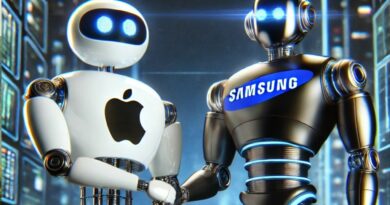Bill Gates Was Turning Down Job Offers at 18
Imagine being 18, a freshman at Harvard University, and already turning down job offers from some of the biggest names in tech. That was Bill Gates in 1973, a young man with a knack for coding and a resume that made industry giants like Honeywell and General Electric sit up and take notice. In his recently published memoir, Source Code, Gates reflects on this pivotal moment in his life—a time when he could have traded lecture halls for a steady paycheque but chose instead to bide his time, waiting for the perfect opportunity to revolutionise the world. It’s a story of youthful ambition, calculated risks, and an ego boost that set the stage for Microsoft’s meteoric rise.
Gates wasn’t your average university student. While most of his peers were grappling with midterms, he was typing up a CV that boasted an impressive list of programming feats. From traffic flow analysis software crafted with his high school mate Paul Allen—later his Microsoft co-founder—to hands-on experience with an array of computers, Gates had a portfolio that belied his age. “I wasn’t that serious about finding a job,” he writes in Source Code, “but maybe something interesting would happen if I tried.” Little did he know, that casual curiosity would spark a chain of events leading to a $3 trillion tech empire.
The Tech World Comes Calling
The first to bite was Digital Equipment Corporation (DEC), a Massachusetts-based firm renowned for its PDP-10 computers—the very machines Gates had cut his teeth on back in Seattle. DEC didn’t just offer him a job; they flew him to their headquarters in a helicopter, a thrill Gates describes as “cool enough” even without the employment carrot dangling. Touring DEC’s facilities felt like a pilgrimage for the young coder. “It was the closest thing for me at that age to visiting Mecca,” he recalls, basking in the awe of meeting engineers whose work he’d studied obsessively on platforms like IEEE Xplore.
The experience was intoxicating. DEC saw potential in Gates, valuing skills he’d honed since his teens. Yet, despite the flattery—and a job offer he calls “incredibly flattering”—he walked away. It wasn’t the only offer he declined. General Electric tempted him with a programming gig at their Kentucky appliance factory, and Honeywell dangled a role in their computers division. Gates turned them all down, returning to Harvard for his sophomore year. Meanwhile, Allen took the Honeywell bait, moving to Boston in 1974 to work as a programmer—a move that kept their partnership simmering, as detailed in tech history archives like those at Computer History Museum.
Why say no? Gates admits in his memoir that jumping into the job market felt “dicey.” He and Allen had bigger dreams, ones that hinged on the nascent personal computer revolution. Gates was playing the long game, waiting for technology to catch up with their vision. Those rejections weren’t just about caution—they were a confidence booster. “We were just trying to get the ego boost of people offering us jobs,” he told CNBC Make It, a playful admission that underscores how those offers validated his belief in a future dominated by software.
The Spark That Lit Microsoft
That future arrived sooner than expected. A few months after Allen settled in Boston, he stormed into Gates’ dorm with a copy of Popular Electronics. The cover star? The Altair 8800, billed as the world’s first minicomputer. For Gates, it was the sign he’d been waiting for. Personal computing was no longer a distant dream—it was here. The duo seized the moment, putting Harvard on hold to launch a software venture. By April 1975, Microsoft was born in New Mexico, a decision that would reshape the tech landscape, as chronicled in business analyses on sites like Forbes.
What if Gates had taken one of those early offers? A cushy role at DEC or Honeywell might have tethered him to someone else’s ladder, delaying—or derailing—Microsoft’s ascent. It’s a tantalising “what if,” but Gates dismisses it with a shrug. The job hunt wasn’t about settling down; it was about testing his worth. Those offers didn’t just stroke his ego—they crystallised his conviction that computers were his calling.
A Legacy Built on Confidence
Today, Microsoft stands as a titan, its market cap soaring past $3 trillion. Gates, now a philanthropist steering the Bill & Melinda Gates Foundation, looks back on those early days with a mix of nostalgia and clarity. His memoir, available through Penguin Random House, peels back the curtain on a teenager who dared to dream bigger than the opportunities handed to him. The tech job offers of 1973 didn’t lure him away from Harvard—they propelled him towards a destiny he’d write himself.
For anyone chasing their own path, Gates’ story is a reminder: sometimes, the confidence to say “no” is the first step to building something extraordinary. At 18, he didn’t just turn down jobs—he turned towards history, a legacy now studied in tech innovation hubs like MIT Technology Review.
We’d love your comments on today’s topic!
For more articles like this one, click here.
Thought for the day:
“Technology is a useful servant but a dangerous master.” — Christian Lous Lange



